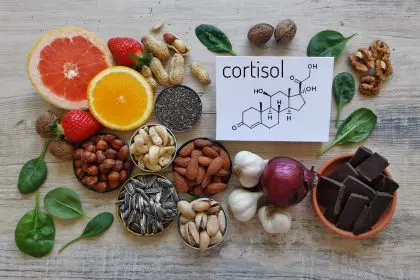Non-alcoholic fatty liver disease affects nearly a quarter of adults worldwide, yet many people remain unaware of how their daily habits contribute to this condition. Unlike liver damage from alcohol, this increasingly common health issue develops silently from lifestyle factors that might seem harmless. Understanding which everyday behaviors contribute to liver fat accumulation allows you to make informed changes before serious complications develop.
How fat accumulates in your liver
The liver serves as your body’s primary filtration system, processing nutrients and removing toxins from the bloodstream. This remarkable organ has the capacity to regenerate damaged tissue and maintain function even when partially compromised. However, when fat begins accumulating within liver cells, this resilience becomes tested.
Fat deposition in the liver occurs when the organ cannot process fats efficiently or when too many fats or carbohydrates enter the system. Under normal circumstances, the liver breaks down fats and either uses them for energy or distributes them to other parts of the body. When this process becomes overwhelmed or dysfunctional, fat particles begin storing within liver cells.
This condition initially manifests as simple steatosis, or basic fatty liver, where excess fat builds up without causing inflammation or liver cell damage. At this early stage, most people experience no symptoms, and the condition remains reversible through lifestyle modifications.
However, if left unaddressed, fatty liver can progress to non-alcoholic steatohepatitis (NASH), where inflammation and cell damage occur alongside fat accumulation. This inflammatory state can eventually lead to fibrosis, where scar tissue begins replacing healthy liver cells. Advanced fibrosis may develop into cirrhosis, causing permanent liver damage and increasing the risk of liver failure and cancer.
The progression from simple fatty liver to more serious conditions typically occurs over years or decades. This slow development creates both challenge and opportunity – while the disease may advance silently without obvious symptoms, it also provides a significant window for intervention before irreversible damage occurs.
Understanding how everyday behaviors contribute to this fat accumulation gives you the power to make meaningful changes. Many of the habits that impact liver health are so embedded in modern lifestyles that they often go unrecognized as potential health threats.
Consuming hidden sugars in beverages
The liquid calories you consume daily may significantly impact liver health in ways many people fail to recognize. Sweetened beverages represent one of the most insidious sources of excess sugar in modern diets, contributing directly to fat accumulation in the liver through multiple mechanisms.
When you consume sugar-sweetened drinks, your liver processes large amounts of fructose, a type of sugar particularly harmful in excessive quantities. Unlike glucose, which can be used by cells throughout your body, fructose must be processed primarily by the liver. When fructose arrives in large amounts, the liver converts much of it directly into fat through a process called de novo lipogenesis. This newly created fat can remain in the liver or enter the bloodstream as triglycerides.
The typical 12-ounce soda contains approximately 10 teaspoons of added sugar, often in the form of high-fructose corn syrup. Energy drinks, sweetened teas, flavored coffees, and fruit juices with added sugars contribute similar amounts. Even beverages marketed as “healthy” options can contain surprising amounts of sugar – some bottled smoothies contain more sugar than a candy bar.
Daily consumption of these beverages creates a pattern where the liver constantly processes excess sugar, leading to increased fat production and storage within liver cells. Research indicates that consuming just one sugar-sweetened beverage daily significantly increases the risk of developing non-alcoholic fatty liver disease, even in people who maintain a healthy weight.
The danger extends beyond just added sugars. Some studies suggest that artificial sweeteners may also negatively impact metabolic health and potentially contribute to fatty liver development through effects on gut bacteria and insulin sensitivity, though more research is needed in this area.
Making the switch to water, unsweetened tea, or black coffee eliminates these empty calories and reduces the sugar burden on your liver. For those who find plain water unpalatable, adding slices of fresh fruit or herbs can provide flavor without the sugar impact of commercial beverages.
Eating processed carbohydrates regularly
The white bread, crackers, pastries, and other refined carbohydrates that form staples in many diets contribute significantly to liver fat accumulation through their effects on blood sugar and insulin levels. Understanding this connection helps explain why dietary changes form the cornerstone of fatty liver treatment.
Processed carbohydrates break down rapidly during digestion, causing sharp increases in blood glucose levels. This spike triggers your pancreas to release insulin, the hormone responsible for moving glucose from the bloodstream into cells. When these insulin surges occur repeatedly throughout the day from frequent consumption of refined carbs, cells can eventually become less responsive to insulin’s effects, a condition known as insulin resistance.
As insulin resistance develops, the body produces even more insulin to maintain blood glucose control. These elevated insulin levels promote fat synthesis in the liver and inhibit fat breakdown, creating perfect conditions for fat accumulation within liver cells. Additionally, excess glucose that cannot enter insulin-resistant cells is converted to fat by the liver, further contributing to fatty liver development.
The glycemic index (GI) measures how quickly foods raise blood sugar levels, with higher numbers indicating more rapid effects. White bread, for example, has a high GI of approximately 75, while its whole grain counterpart typically scores around 55. This difference reflects how the fiber content in whole grains slows digestion and moderates the blood sugar response.
Replacing refined carbohydrates with whole, fiber-rich alternatives provides a simple yet effective strategy for reducing liver fat. Whole grains, legumes, and vegetables deliver carbohydrates packaged with fiber that slows digestion, moderates blood sugar response, and supports healthy gut bacteria. These complex carbohydrates provide sustained energy without triggering the insulin spikes that contribute to fat storage in the liver.
The transition away from processed carbohydrates need not happen overnight. Gradual changes, such as switching from white to whole grain bread or replacing morning pastries with steel-cut oats, create sustainable improvements in liver health over time.
Maintaining a sedentary lifestyle
The hours spent sitting each day represent a significant risk factor for fatty liver development, independent of exercise habits. Even those who engage in regular workouts may still face increased liver fat accumulation if they remain sedentary throughout most of their day.
Extended periods of physical inactivity negatively affect how your body processes fats and carbohydrates. Prolonged sitting reduces the activity of lipoprotein lipase, an enzyme that helps break down fat in the bloodstream, while simultaneously decreasing insulin sensitivity in muscle tissue. These metabolic changes create conditions where fats remain in circulation longer and are more likely to be stored in the liver.
The sedentary nature of modern life presents a relatively new challenge for human physiology, which evolved during times when physical activity was constant throughout the day. Office work, commuting, screen time, and labor-saving devices all contribute to a lifestyle where sitting represents the default position for many adults. Data indicates that the average adult spends 9-10 hours daily in sedentary behaviors, creating significant metabolic consequences.
Research demonstrates that breaking up sitting time with even brief periods of movement significantly improves metabolic parameters related to liver health. Standing for just two minutes every half hour, taking short walking breaks, or incorporating simple stretches throughout the day helps maintain enzyme activity and insulin sensitivity that protect against liver fat accumulation.
For those with desk jobs, solutions include using standing desks or workstations that allow position changes throughout the day, scheduling regular movement breaks, or adopting the practice of walking meetings when practical. Even simple adjustments like placing printers or trash bins away from desks creates natural opportunities for movement during work hours.
The goal should not necessarily be eliminating all sitting but rather breaking up extended sedentary periods with movement. The metabolic benefits of these interruptions appear partly independent of formal exercise, meaning even those who regularly work out should pay attention to their non-exercise activity throughout the day.
Skipping or skimping on breakfast
The morning meal plays a surprisingly important role in liver health, with research suggesting that breakfast habits significantly influence fat metabolism and accumulation throughout the day. How you start your day metabolically sets the stage for liver function over the next several hours.
Skipping breakfast creates a prolonged fasting state that, contrary to what some might expect, often leads to increased fat storage rather than fat burning in susceptible individuals. This occurs because extended fasting can trigger increased production of stress hormones like cortisol, which promotes fat storage, particularly in the abdominal area and liver. Additionally, breakfast skippers tend to have higher levels of insulin resistance throughout the day, further promoting fat accumulation in liver cells.
The quality of breakfast matters significantly. Morning meals high in refined carbohydrates and sugar, such as sweetened cereals, pastries, or white toast with jam, create sharp blood sugar and insulin spikes that promote fat synthesis. These foods typically digest quickly, leaving you hungry shortly afterward and potentially leading to overconsumption later in the day.
Protein-rich breakfasts appear particularly beneficial for liver health. Research indicates that consuming adequate protein in the morning improves satiety, reduces food cravings throughout the day, and helps maintain stable blood sugar levels. These effects collectively reduce the likelihood of overeating and help maintain metabolic conditions that discourage liver fat accumulation.
Timing also influences how breakfast affects liver function. Eating within the first hour after waking appears to synchronize metabolic processes most effectively with natural circadian rhythms. This alignment helps optimize insulin sensitivity and fat metabolism throughout the day, potentially reducing the likelihood of fat storage in the liver.
For those who genuinely dislike traditional breakfast foods or who practice intermittent fasting under medical supervision, ensuring that the first meal of the day contains adequate protein, healthy fats, and fiber remains important regardless of when that meal occurs. The nutritional composition of this first meal sets metabolic patterns that influence liver health throughout the day.
Simple improvements include replacing sugary cereals with plain Greek yogurt topped with berries and nuts, switching from pastries to eggs with vegetables, or preparing overnight oats with added protein powder for busy mornings. These changes provide lasting energy without the blood sugar fluctuations that contribute to liver fat development.
Chronically undervaluing sleep
The hours you spend sleeping significantly impact liver function in ways that many people fail to recognize. Sleep deprivation and poor sleep quality increase the risk of fatty liver development through multiple biological mechanisms affecting metabolism and stress response.
Insufficient sleep disrupts the hormones that regulate hunger and satiety. Just one night of inadequate sleep increases levels of ghrelin, the hormone that stimulates appetite, while reducing leptin, the hormone that signals fullness. This hormonal imbalance typically leads to increased calorie consumption, particularly of carbohydrate-rich comfort foods that contribute to liver fat accumulation.
Sleep restriction also directly impairs insulin sensitivity, creating conditions where cells respond less effectively to insulin’s action. Studies demonstrate that just four nights of insufficient sleep can reduce insulin sensitivity by over 30% in otherwise healthy adults. This decreased sensitivity promotes higher circulating insulin levels, which stimulate fat production and storage in the liver.
The stress response triggered by sleep deprivation further contributes to liver fat accumulation. Poor sleep increases cortisol levels, particularly in the evening when this stress hormone should naturally decline. Elevated cortisol promotes fat storage, especially in the abdominal region, and increases glucose production by the liver, creating additional metabolic challenges.
Sleep timing matters alongside duration. Irregular sleep schedules and shift work disrupt circadian rhythms that regulate liver metabolism. The liver maintains its own biological clock that coordinates fat processing, bile production, and detoxification functions. When sleep patterns consistently vary, these rhythms become disordered, potentially contributing to fat accumulation within liver cells.
The relationship between sleep and liver health appears bidirectional, creating potential feedback loops. Liver dysfunction can disrupt sleep quality through effects on metabolism and toxin clearance, while poor sleep further impairs liver function, potentially creating a cycle of worsening health in both areas.
Prioritizing sleep hygiene represents an often overlooked strategy for improving liver health. Maintaining consistent sleep and wake times, creating a comfortable sleep environment, limiting screen exposure before bedtime, and managing stress can significantly improve both sleep quality and metabolic health, potentially reducing liver fat accumulation over time.
Relying on ultra-processed foods
The convenience of ready-to-eat packaged foods comes with significant consequences for liver health. Ultra-processed foods, which undergo multiple industrial processes and contain ingredients not typically used in home cooking, create perfect conditions for liver fat accumulation through several mechanisms.
These products typically contain combinations of refined carbohydrates, added sugars, and industrial seed oils that challenge normal liver metabolism. The refined carbohydrates break down rapidly, causing blood sugar and insulin spikes that promote fat storage. Added sugars, often in the form of high-fructose corn syrup, must be processed primarily by the liver, where they can be converted directly into fat when consumed in excess.
Many ultra-processed foods contain industrial seed oils high in omega-6 fatty acids. While these fats are essential in small amounts, the excessive quantities found in modern processed foods may promote inflammation and alter liver fat metabolism. These oils often undergo extensive processing that creates compounds potentially harmful to liver function.
The hyperpalatability of ultra-processed foods, engineered through precise combinations of sugar, salt, fat, and flavor enhancers, often leads to overconsumption. These products typically require less chewing and digest rapidly, allowing consumption of excessive calories before satiety signals register. This pattern directly contributes to caloric surplus and subsequent liver fat accumulation.
Beyond their direct nutritional impact, ultra-processed foods may also influence liver health through effects on gut bacteria. The emulsifiers, preservatives, and other additives in these products can potentially alter the gut microbiome composition, affecting how nutrients are processed and absorbed. Some research suggests these microbial changes may influence fat storage and inflammation in the liver, though this area requires further study.
The transition away from ultra-processed foods need not be abrupt or absolute. Gradual changes, such as replacing packaged snacks with fresh fruit, preparing simple home-cooked meals several times weekly, or reading ingredient labels to identify less processed options, create meaningful improvements in liver health over time. Learning basic cooking techniques equips you to prepare satisfying alternatives to convenience foods while maintaining control over ingredients.
Managing stress ineffectively
The way you respond to daily stressors significantly impacts liver health through both direct physiological pathways and indirect behavioral changes. Chronic stress creates conditions favorable for liver fat accumulation even when other lifestyle factors remain optimal.
Persistent stress elevates cortisol levels, the primary stress hormone that affects metabolism throughout the body. Chronically elevated cortisol promotes fat storage, particularly in the abdominal region, while simultaneously increasing glucose production by the liver. This combination creates perfect conditions for fat accumulation within liver cells, especially when coupled with insulin resistance that often accompanies chronic stress.
Stress-eating behaviors compound these physiological effects. Many people instinctively reach for comfort foods high in sugar, refined carbohydrates, and unhealthy fats when feeling stressed or anxious. These food choices provide temporary emotional relief through effects on brain chemistry but contribute directly to liver fat accumulation through their nutritional properties.
Sleep disruption from stress creates additional challenges for liver health. Anxiety, worry, and rumination often interfere with both sleep quality and duration, creating a cycle where stress impairs sleep, and poor sleep further elevates stress hormones. This pattern exacerbates metabolic dysfunction and promotes liver fat storage through multiple pathways.
Alcohol consumption as a stress management strategy presents particular risks for liver health. Using alcohol to unwind after stressful days creates direct liver burden through toxin processing while simultaneously affecting metabolism in ways that promote fat storage. This habit can accelerate the development of fatty liver disease or worsen existing conditions.
Effective stress management represents an often overlooked component of liver health maintenance. Practices like mindfulness meditation, deep breathing exercises, regular physical activity, and adequate sleep help moderate the stress response, potentially reducing its impact on liver metabolism. Setting boundaries around work obligations, practicing time management, and building supportive social connections further contribute to stress resilience.
Importantly, effective stress management doesn’t necessarily mean eliminating stressors entirely, which may be impossible in modern life. Instead, it involves developing healthier responses to inevitable stressors, creating buffers against their physiological impact, and implementing recovery practices that prevent stress from becoming chronic.
Reversing liver fat with healthier habits
The encouraging news about fatty liver disease lies in its highly responsive nature to lifestyle modifications. Research consistently demonstrates that appropriate changes can significantly reduce liver fat, often within just weeks or months of implementation.
Weight loss of even 5-10% of body weight produces meaningful reductions in liver fat content for those who carry excess weight. This moderate weight loss target feels achievable for many people and delivers significant health benefits beyond liver improvement. The focus should remain on sustainable approaches rather than rapid weight loss, which may temporarily stress the liver.
Mediterranean-style eating patterns show particular promise for liver health improvement. This approach emphasizes vegetables, fruits, whole grains, legumes, fish, olive oil, and nuts while limiting processed foods, added sugars, and red meat. The combined effects of these dietary components appear to reduce liver fat more effectively than simply reducing calories or fat intake.
Incorporating specific liver-friendly foods may enhance improvement. Green leafy vegetables provide compounds that support liver detoxification pathways. Cruciferous vegetables like broccoli and Brussels sprouts contain substances that may help protect liver cells from damage. Berries, nuts, fatty fish, garlic, and olive oil each contain compounds associated with reduced inflammation and improved liver function.
Regular physical activity significantly reduces liver fat independent of weight loss effects. Both aerobic exercise and resistance training appear beneficial, with consistency mattering more than intensity for most people. Current guidelines recommend at least 150 minutes of moderate physical activity weekly, ideally spread throughout the week rather than concentrated in one or two sessions.
Avoiding alcohol allows the liver to direct its resources toward fat processing rather than toxin metabolism. For those with existing fatty liver, even moderate alcohol consumption may impair recovery and accelerate progression to more serious conditions. Complete abstention often produces the best results in liver health improvement.
Medical supervision during liver recovery provides important safety monitoring and motivation. Healthcare providers can track liver enzyme levels, assess changes in fat content through imaging when appropriate, and help navigate potential complications. Regular follow-up creates accountability while ensuring that improvements progress as expected.
The liver’s remarkable regenerative capacity means that appropriate lifestyle changes can not only stop progression of fatty liver disease but often reverse existing damage in its earlier stages. This plasticity provides powerful motivation for implementing healthier daily habits, knowing that positive results typically follow relatively quickly.
Understanding how everyday habits influence liver health empowers you to make informed choices that protect this vital organ. The seven habits discussed – consuming hidden sugars, eating processed carbohydrates, maintaining a sedentary lifestyle, skipping breakfast, undervaluing sleep, relying on ultra-processed foods, and managing stress ineffectively – create a roadmap for identifying potential areas for improvement in your own routine.
The silent nature of fatty liver disease in its early stages means that prevention through lifestyle modification represents the most effective approach. By addressing these common habits before symptoms develop, you can potentially avoid the progressive damage that leads to more serious liver conditions.
For those already diagnosed with fatty liver disease, the same lifestyle changes offer hope for improvement and potential reversal, particularly when implemented consistently under appropriate medical supervision. The liver’s remarkable regenerative capacity responds well to positive changes, often showing measurable improvement within months.
Remember that small, sustainable changes often produce better long-term results than drastic overhauls that prove difficult to maintain. Begin by identifying which habits most clearly apply to your lifestyle, then implement gradual improvements that build toward liver health over time.













